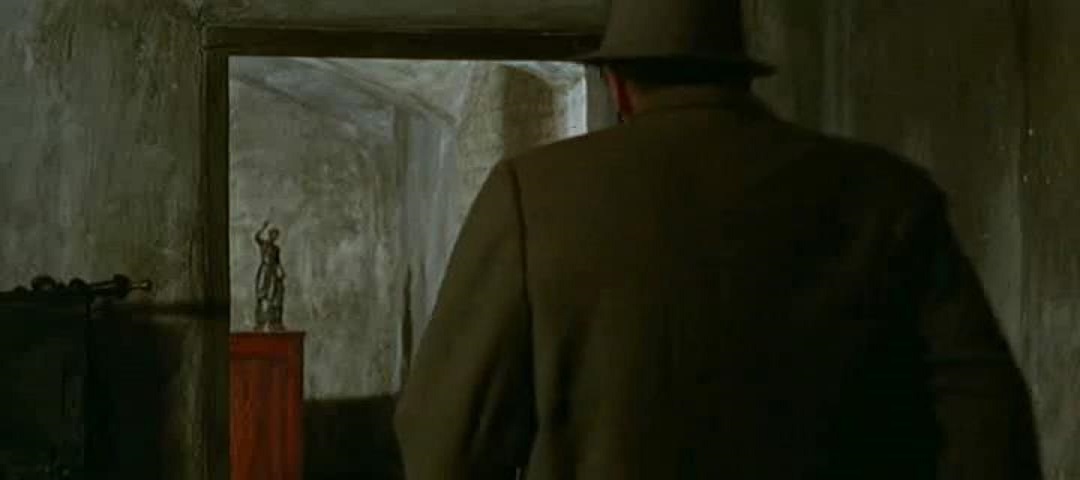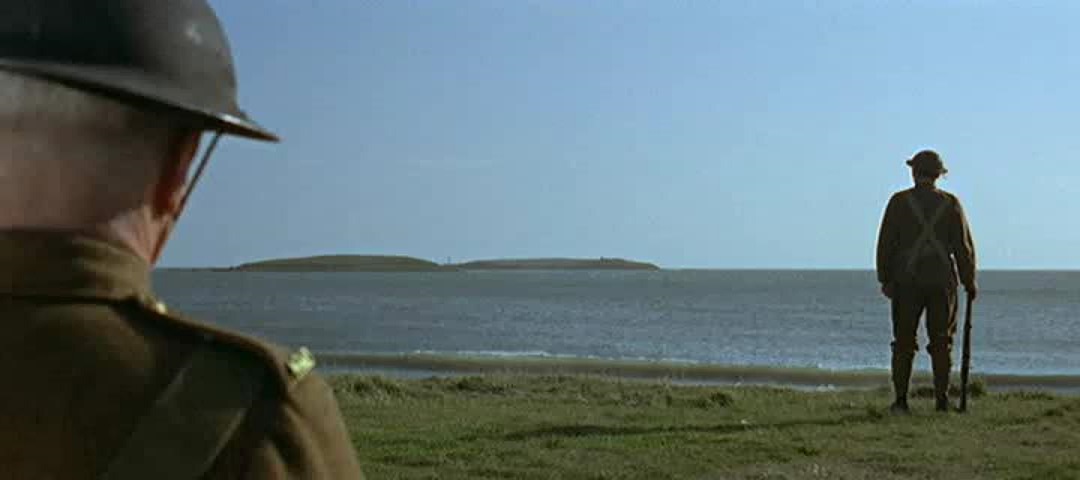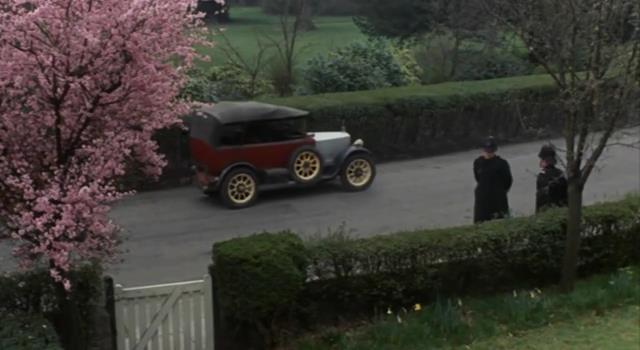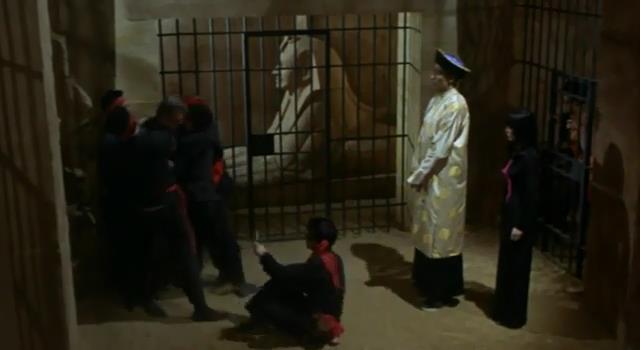The Kiss of the Vampire
A
very pure distillate of Dracula and White Zombie, to begin with. The motorcar in its early stages goes awry in the
woods, the bride cannot read a map, they stay at the Grand Hotel where there is
only one other guest.
Dr. Ravna invites them to his chateau, a party with “a
chef from Paris and an orchestra from Vienna” brusquely ends when she is
kidnapped and he is drugged.
Prof. Zimmer
invokes the powers of darkness, vampire bats assail
the chateau and its occupants.
Witchcraft
The title,
absolute and definitive as an encyclopedia entry, is borne out ultimately by a
coven practicing hexes and infant sacrifice, no less.
The incipit is a
bulldozer dislodging a gravestone, a burnt witch rises
from the past while the descendants rail and threaten the builder of tract
homes whose impetuous contractor has taken an unwonted initiative.
The witches are
Anglo-Saxons, the builders are of Norman descent.
Such large forms
in action make for a foursquare maleficence roundly
dealt with.
The Face of Fu Manchu

“But you
saw him beheaded!”
“I saw someone beheaded.”
A
crime wave across Europe. The
rare poison, secret of the Grand Lama...
Precisely
the tenor and mystery of Feuillade in Technicolor and Techniscope, a tour de force.
The vaults
beneath the Museum of Oriental Studies are from The Day They Robbed the Bank of England (dir. John Guillermin),
with a fine citation of Reed’s The
Third Man.
Nayland Smith back from the East, Assistant Commissioner,
Scotland Yard.
Howard
Thompson of the New York Times,
“a deadly bore”.
Tom Milne (Time Out), “beautifully designed,
perfectly paced and genuinely exciting thriller, with terrific performances
from Lee (Fu Manchu) and Green (a magnificently imperturbable Nayland Smith).
The Chinoiserie sets are gorgeous; even better are the locations, so carefully
chosen for their period possibilities that the spirit of Feuillade hovers
benignly over sequences like the great chase with rattletrap cars speeding
along cobbled alleys while the pilot of a pursuing aeroplane leans,
entrancingly, over the side to drop his squat, fin-tailed bombs by hand.
Stylish, witty and a treat to watch.”
Sergio Angelini (British Film Institute), “handled with customary gusto and panache by
director Don Sharp... Nigel Green is brilliant as Fu Manchu's nemesis Nayland Smith, an equally driven and self-centred character who isn't so much the heroic alter ego of
the villain as another cold-blooded fascist, albeit with a slightly different
set of priorities.” Halliwell’s
Film Guide, “entertaining spoof like a tuppenny
blood come to life.”

Rasputin the Mad Monk
A career of sorts,
the characterization in the title is given by the court physician he has caused
to be appointed through hypnosis practiced upon the Tsarina, there is no
politics, no consideration of society to speak of, only the desideratum of
wealth and a strong religious element resembling the miracles of Christ.
The Brides of Fu Manchu

Daughters of men useful
to Fu Manchu, kidnapped (cf. Preminger’s Rosebud).
A
certain receptivity is necessary in the place attacked.
The missing
element of Sharp’s Feuillade, a surrealism, an anonymity. The Face of Fu Manchu is eminently logical, here without a reduction to system is something of
Max Ernst.
“It seems
that all this has happened before,’ says Smith’s Watson, “it’s
uncanny.”
The battle of the
brides and dacoits under the sign of Ancient Egypt is a memorable image.
Time Out,
“it
manages to get quite a lot of fun out of a Bondish plot”. Halliwell’s
Film Guide, “very adequate sequel”.

Rocket to the Moon
From Jules Verne,
an Anglo-American venture to fire a projectile out of a pit dug in the Welsh
hills, with a new German explosive that should propel a man to the moon.
A résumé
of the space program encompasses all the difficulties and disasters in a
smiling way that’s lightly recognizable, and as the project nears
completion the film’s angle turns toward the raison d’être,
which after all agrees with McCarey’s Rally ‘Round the Flag, Boys!,
it is to keep the embezzler and the crackpot on their toes.
Furthermore,
there is a fortune in Welsh coal blasted out by the launch, an unlooked-for
benefit.
A
serenely mad comedy, like Méliès’ original, with an intricate system of gag
analysis that seems to have gone over some heads. It’s also a regular checklist of
science-fiction on the subject, starting with Lang’s Frau im Mond
and Pichel’s Destination Moon for Phineas
T. Barnum and the Duke of Barset forming a private
committee to build the moonship.
Psychomania
An address of
attention to motorcycle gangs as dead to society and really dead but
resuscitated by “superior powers”.
The two main
scenes giving the force of the drama concern the nature of the pact and the
quality of mind inherently governing the gang in question.
The locked room
in his mother’s house shows Tom (Nicky Henson) unreflected
by its full-length mirror, his father died there, cuckolded by his mother
(Beryl Reid) with a mysterious figure under the sign of the toad.
She is a
spiritualist, conducting séances with the aid of her butler, Shadwell (George
Sanders).
Death voluntarily
entered while believing in the return brings immortality and invulnerability.
The second
descriptive scene is played with Tom on his bike as he is buried. Another of
The Living Dead sings a pop song in his praise, without condescension it
conveys the precise imbecility of these hooligans in a well-written tune.
Extensive stunt
work, gag scenes like the various suicides in emulation of the leader (and a
pan all the way around a small autopsy room that starts with three live cops
and one supposedly dead girl).
The Thirty-Nine Steps
Nobody paid any
mind, but an absolutely brilliant masterpiece was paraded before the public
without any significance whatsoever being attached to it by anybody.
Here is the
Prussian Intelligence war effort in Britain, quite on the order of Lang’s
Man Hunt, just before the Great War, a silly expatriate (Robert Powell)
gets caught up in it and provides advance information preparing the fleet.
The very idea of
Hitchcock, never mind that Buchan is his own man, never mind.
There are a few
points of congruity with Thomas and Hitchcock, surprisingly few.
Variety and Halliwell saw nothing at all, nothing worth
recommending, certainly.